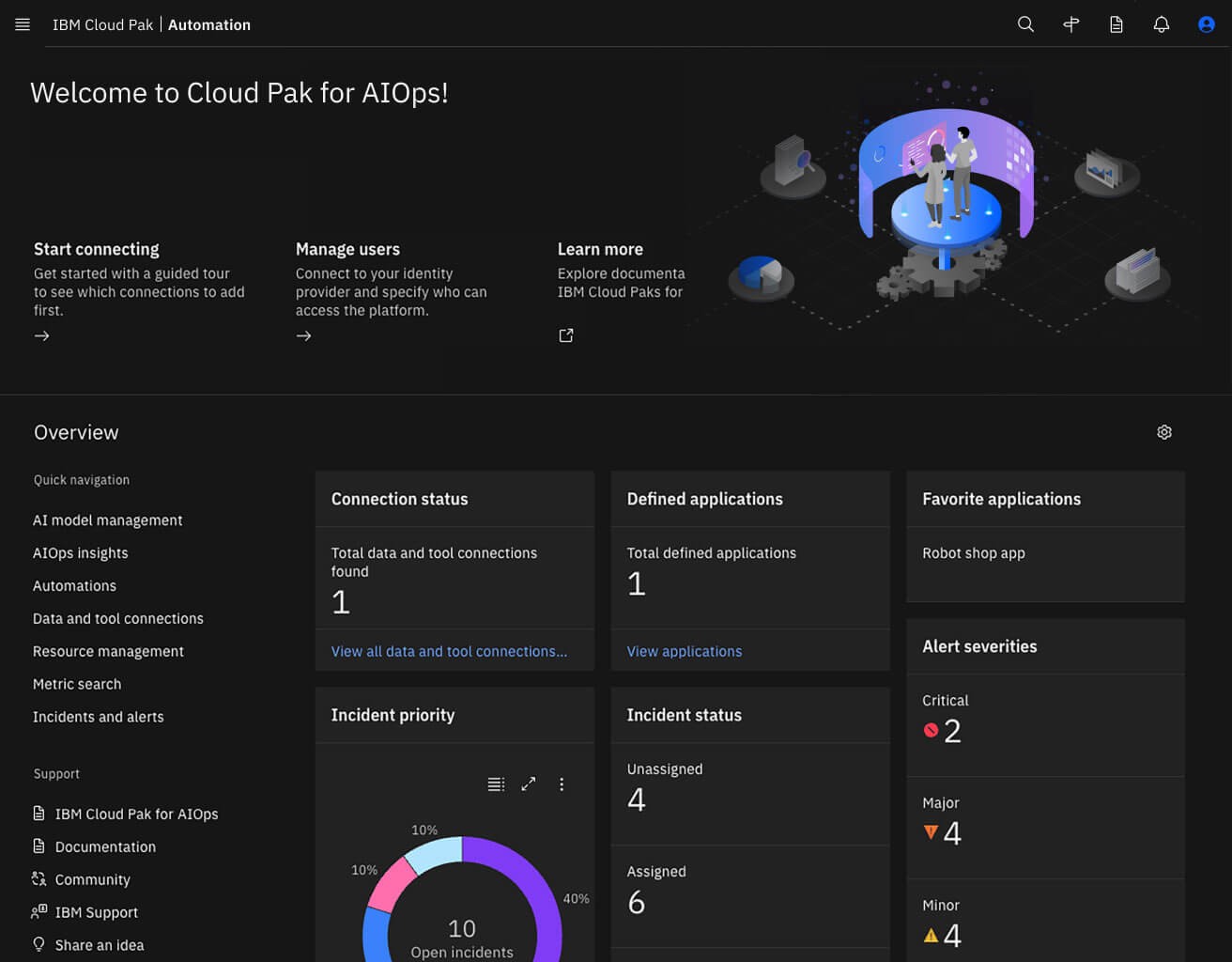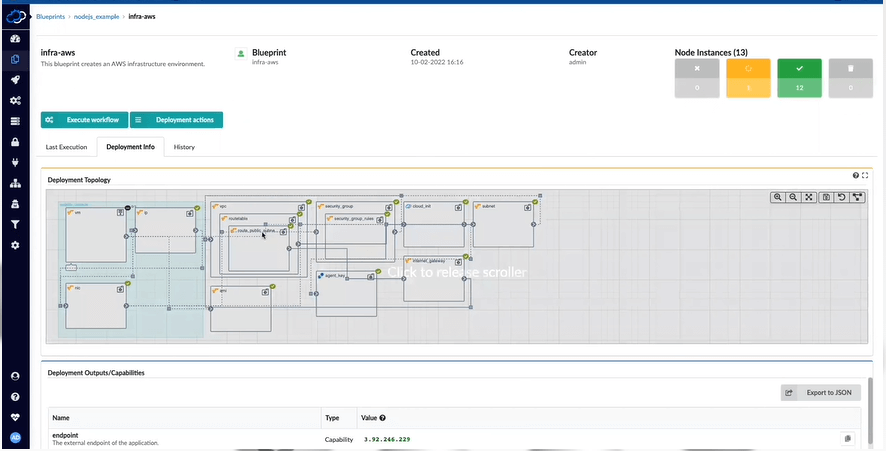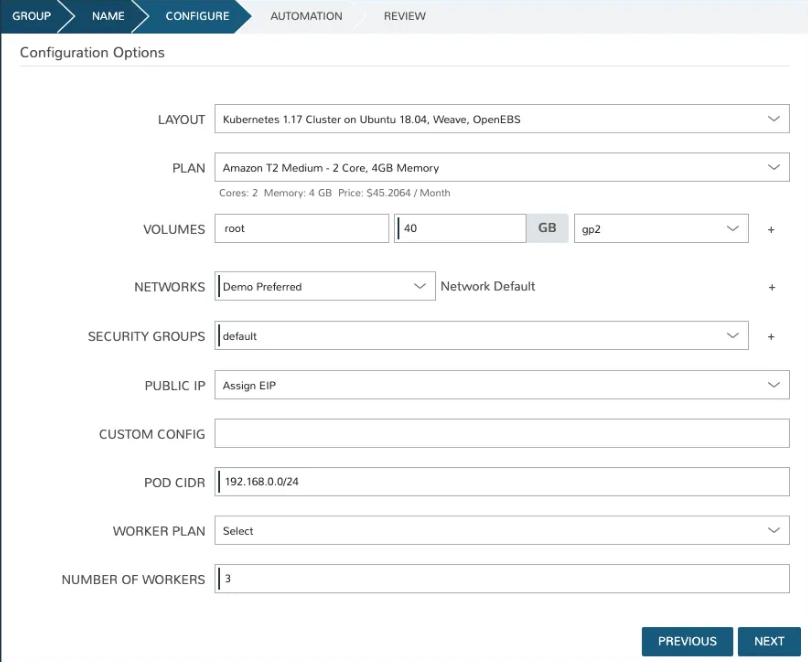Multi-Cloud Management: Definition + 7 Best Tools

As organizations increasingly leverage services from different cloud providers for optimizing costs, enhancing resilience, or utilizing platform-specific features, they face the challenge of managing diverse environments seamlessly. This is where multi-cloud management comes into play.
In this guide, we will first define what multi-cloud strategy is, its benefits, and challenges, highlight some of the best multi-cloud management tools to use, and how to choose the best multi-cloud management platform for overseeing multiple cloud environments.
#What is multi-cloud management?
Multi-cloud management is about handling and coordinating several cloud computing environments, frequently from different cloud providers. It implies various solutions to oversee, coordinate, and streamline operations across multiple cloud service platforms. A well-structured multi-cloud strategy plays a key role in optimizing enterprise software, ensuring applications run smoothly across different cloud infrastructures while avoiding unnecessary redundancies and resource drain.
This may entail a set of multi-cloud management tools, managing assets, applications, and data across several cloud platforms as well as preserving uniformity and compliance throughout all environments, ensuring website speed optimization or maintenance.
Some critical aspects of multi-cloud management include:
- Orchestration: Ensuring seamless operation and interaction between cloud platforms, including the automatic configuration, coordination, and management of multiple system environments;
- Cost monitoring and optimization: Keeping track of the spending on multiple clouds, identifying cost-saving opportunities, and allocating resources efficiently;
- Performance monitoring: Assessing and ensuring that the services across multiple clouds perform optimally and meet defined service levels;
- Data integration: Coordinating and integrating data across different cloud environments, ensuring data consistency, making sure data is structured and organized, and reducing data silos;
- Migration and portability: Facilitating the transfer of applications and workloads between different cloud providers, ensuring flexibility and agility;
- Backup and disaster recovery: Managing backups and recovery strategies uniformly across all cloud platforms to ensure data resilience.
#Multi-cloud strategy benefits
The key benefit is the ability to leverage the strengths of different clouds while avoiding pitfalls through consistent governance. Let's look at how you can benefit from multi-cloud strategy and multi-cloud management.
#Risk management
Relying on a single cloud provider can be risky. Multi-cloud strategies, in contrast, allow companies to hedge their bets. If one provider faces outages or security breaches, you're not left out in the cold. You can fall back on other providers, ensuring uninterrupted service.
#Enhanced flexibility and agility
The tech world is fast-paced. To stay ahead, companies must be agile. Adopting a multi-cloud approach lets businesses pivot quickly. If a service or tool doesn't pan out on one platform, you can swiftly shift gears and tap into another, ensuring you always stay on your toes.
#Cost optimization
Different cloud providers have their sweet spots in pricing for specific services. By juggling multiple clouds, you can determine the best deals from each, ensuring you stretch every dollar. Plus, you can play your cards right during negotiations, leveraging one provider's pricing against another.
#Data sovereignty and geographical considerations
As companies branch out globally, they often run into local data regulations. Some countries state the law requiring data to be stored within their borders. With a multi-cloud strategy, you can hop between providers with data centers in different regions, ensuring you're always on the right side of the law.
#Leveraging specialized services from different providers
Not all cloud providers are cut from the same cloth. Each one brings something unique to the table. You can pick specialized services from each by not tying yourself to one provider. Whether fishing for top-notch AI tools, superior analytics, or unmatched storage solutions, you can get it with a multi-cloud approach.
Also read: Benefits of private cloud
#Multi-cloud management challenges
Organizations may achieve their bold objectives by managing multi-cloud environments and exploiting the benefits of various cloud platforms. This can be done by solving particular issues.
#Integration and interoperability issues
When you mix and match various cloud services, they don't always work well together. Different platforms come with their own quirks, making it a tough nut to crack when trying to get systems to talk to each other seamlessly. The issues arise due to variations in application programming interfaces (APIs), management interfaces, deployment models, and service offerings.
Therefore, since each one has its tools, rules, and procedures, it may require more work to maintain uniform governance and control across different clouds, resulting in higher operating costs and longer deployment times.
#Multi-cloud data management
Multi-cloud data management is one of the significant issues when leveraging a multi-cloud strategy. When moving data between platforms, you can run into snags like latency issues, inconsistent data formats, or transfer costs that can throw a spanner in the works.
Just like gravity pulls objects toward the center, the more data you accumulate in one cloud, the harder it can be to move. This concentration can pull in more applications and services, making data movement feel like you're trying to wade upstream.
Apart from that, cloud providers can throw a curveball with costs, especially when you're pulling data out. These egress fees can stack up and take a bite out of your budget if you frequently transfer large volumes.
#Platform integration and compatibility
Connecting cloud services and apps across several platforms is another issue. Each cloud platform has its own unique integration procedures and requirements for compatibility. Investments in integration solutions are necessary for organizations to link and coordinate services across diverse cloud platforms effectively. Interoperability may suffer, and multi-cloud architectures' flexibility may be constrained without established integration approaches.
#Security concerns
With data scattered across various clouds, it becomes a challenge to ensure it's locked down tight. The risk of a security breach can bother you, especially when you have to square off against ever-evolving cyber threats. For each platform, certain rules and security measures need to be taken care of. It can be difficult to consistently handle security controls, access rights, data protection, and compliance across all clouds.
Therefore, organizations must build robust security architectures, use cloud-native security solutions, and set up efficient governance systems to manage these issues, reduce security risks, and satisfy regulatory requirements.
#Multi-cloud management costs
If your application incorporates several cloud services, it's possible that you won't fully make use of all the advantages. By doing this, you wind up paying for never-used services. Not to mention that keeping track of spending across multiple platforms can make your head spin. Therefore, hidden fees can creep up, and you could end up overpaying without a clear view of where your money's going. That’s why many organizations rely on a cloud cost forecasting tool to improve visibility and anticipate future expenses more accurately.
#Multi-cloud management solutions
To efficiently deal with the challenges described above, you need some proven working multi-cloud management solutions.
Here are the best multi-cloud management solutions you could leverage:
#Use unified cloud platforms
Instead of hopping between different platforms and interfaces, unified cloud management platforms give you a single pane of glass. They tie everything together, ensuring you don’t have to juggle multiple tools. It’s like having a universal remote for all your devices.
Organizations may regulate cloud deployments more effectively by establishing standardized policies, architectures, and processes. These common elements are necessary for optimizing processes and guaranteeing efficient cloud administration.
#Leverage advanced data management tools
Data is the lifeblood of modern businesses, but it can quickly turn into a tangled web. Advanced multi-cloud data management tools help you sort through the noise, ensuring that you can pull out actionable insights. It's about making sure your data doesn't just sit there but actually works for you.
These platforms are crucial for any corporation willing to stay ahead of the competition as they provide centralized management and visibility across various cloud environments. We'll talk about the various multi-cloud management tools further.
#Invest in training and skill development
The cloud landscape isn't static; it's constantly shifting and evolving. Instead of playing catch-up, investing in training ensures your team stays ahead of the curve. It's akin to tuning up your car for a long journey - you want to be in top shape before hitting the road.
Consider adopting Agile and DevOps methodologies. DevOps enables quicker development cycles and more effective operations by placing a higher priority on automation, continuous integration, and continuous delivery. Teams can swiftly adapt to changing needs thanks to agile approaches' emphasis on cooperation, adaptability, and iterative development. Therefore, including DevOps and Agile approaches in your multi-cloud management strategy is essential.
#Automation
Manually managing tasks across multiple clouds can drive anyone up the wall. Workflow automation tools cut repetitive tasks, while orchestration lines up these tasks in harmony. Automation is necessary for managing multi-cloud settings effectively. It is essential for speeding the deployment of resources, enhancing scalability, and assuring uniform setups.
Additionally, automation lowers operational expenses and removes the possibility of human mistakes. As a result, it is a crucial tool to have when managing several clouds.
#7 Best multi-cloud management tools
We’ve already mentioned the importance of multi-cloud management tools usage. There are many multi-cloud management tools and platforms that have been created specifically to handle a multi-cloud setup.
Here are a few of the best multi-cloud management tools and platforms for managing several clouds:
#1. Scalr
A cloud management tool called Scalr makes it easier to manage multi-cloud systems. It offers a consistent interface for resource provisioning and monitoring across several cloud providers.
By offering insights into resource consumption and automating scaling based on preset parameters, Scalr aids enterprises in cost optimization. Scalr allows organizations to retain control and compliance while empowering users with self-service access to cloud resources with its governance and policy enforcement features. This cloud management software is an excellent resource for large businesses with several departments, offices, and sites.
#2. IBM multicloud manager
The management of multi-cloud settings is simplified with IBM MultiCloud Manager. Thanks to its workload placement features, organizations may effectively deploy workloads across various cloud platforms depending on unique requirements and performance concerns. It's perfect for businesses looking for a centralized platform to control many cloud environments.
Emerging technologies like Artificial Intelligence and the listing of Rubbernecks clusters on a single dashboard page set the IBM multi-cloud platform apart from other cloud management solutions.
#3. OpenStack
With the help of the open-source cloud management platform OpenStack, businesses can manage enormous pools of computing, multi-cloud storage management, and networking resources. It boasts the most comprehensive set of capabilities, including virtual networks, bare-metal support, container support, integrated VM and container support, and more. It also has a good top-down architecture.
OpenStack is a fantastic option for heterogeneous infrastructures since it integrates with numerous commercial and open-source technologies. It's a perfect tool for most businesses, but especially for those with little resources because it's not only totally free but also incredibly user-friendly and very scalable, negating the need for highly skilled staff to operate it.
#4. Cloudify
Users can deploy applications or services in cloud computing environments by using Cloudify as middleware. Using its open-source cloud control tool, you can execute apps across many clouds and data centers.
Your whole app's lifespan may be designed and optimized with Cloudify's assistance. This includes administering the deployed application, identifying errors, and maintaining ongoing applications. It also includes deploying to various cloud environments or data centers. Users who don't want to get too technical can utilize Cloudify to run pre-built apps across various clouds.
#5. Flexera
Flexera is an automated platform that manages services. It seamlessly interacts with top setup tools and offers a single view of several clouds with collected information. Flexera coordinates via APIs and has built-in networking, storage, and other features. Self-healing features like automatic backups and failovers are used to start disaster recovery. Additionally, the platform alerts customers to underutilized cloud resources, reducing expenditures.
#6. Morpheus
It is a solution focused on apps and provides an automated and coordinated framework. Organizations may use it to simplify automation, monitoring, and provisioning across numerous cloud platforms.
The centralized visibility and control over Morpheus's cloud resources enables organizations to save expenses, enforce governance, and guarantee compliance. Application lifecycle management, policy-based governance, and intelligent workload placement are some of its advanced capabilities.
#7. CloudZero
With the help of the cloud cost intelligence platform from CloudZero, you can turn telemetry into detailed and useful cost information. This tool assists companies in identifying cost drivers and taking proactive steps to manage their cloud expenditures with an emphasis on reducing excessive spending. Use various tags, metadata, and telemetry to distribute your expenditure more effectively. Your engineers will also receive an update on the expenses of their projects.
#How to choose a multi-cloud management platform
Choosing the best multi-cloud management platform is a critical decision that can affect an organization's agility, efficiency, and security. When evaluating potential multi-cloud management tools, consider the following factors:
#Integration and interoperability
It's essential for a management system to mesh well with your existing tools and platforms. If it doesn't play nice with what you've got, you might end up biting off more than you can chew.
#Centralized monitoring and management
With multiple moving parts in your operations, you need a central hub. Having everything under one roof makes sure you don't miss a beat and can pull the strings effectively.
#Security and compliance
In a world rife with digital threats, you can't afford to let your guard down. Your management system should step up to the plate, ensuring all data and processes align with industry standards and regulations.
#Automation capabilities
The goal is to trim down repetitive tasks. A system that can take the wheel and automate processes ensures you're not bogged down with mundane tasks.
#Data management
With heaps of data pouring in, it's crucial to have a system that doesn't drop the ball. Proper data management, including data mesh implementation, ensures you sift through, organize, and draw insights without breaking a sweat.
#User-friendly interface
Time is of the essence, and a straightforward, intuitive interface ensures you hit the ground running without a steep learning curve.
#Support and training
When you run into a snag, having robust support ensures you're back on track in no time. Plus, proper training means you get the most out of your system from day one.
#Scalability
As you branch out and scale up, your system should keep pace. You don't want to outgrow your tools and have to start from scratch.
#Vendor reliability and reputation
It's crucial to team up with vendors who've been around the block and have a track record of not dropping the ball. Reputation isn't just about name-dropping; it's about peace of mind.
#Extensibility
The digital landscape is ever-evolving. A system that can roll with the punches and adapt by incorporating new plugins or features ensures you're always ahead of the curve.
#Pricing
While you don't want to pinch pennies and compromise on quality, you also want to avoid paying through the nose. Striking a balance ensures you don't burn a hole in your pocket.
#Reporting
With the right reporting tools, you can ensure everyone's on the same page, making informed decisions.
#Final word
Many companies today opt for a multi-cloud strategy. Hopefully, this article helped you understand multi-cloud management better and oversee multiple cloud platforms more efficiently.
Starting at just $3.24 / month, get virtual servers with top-tier performance.








